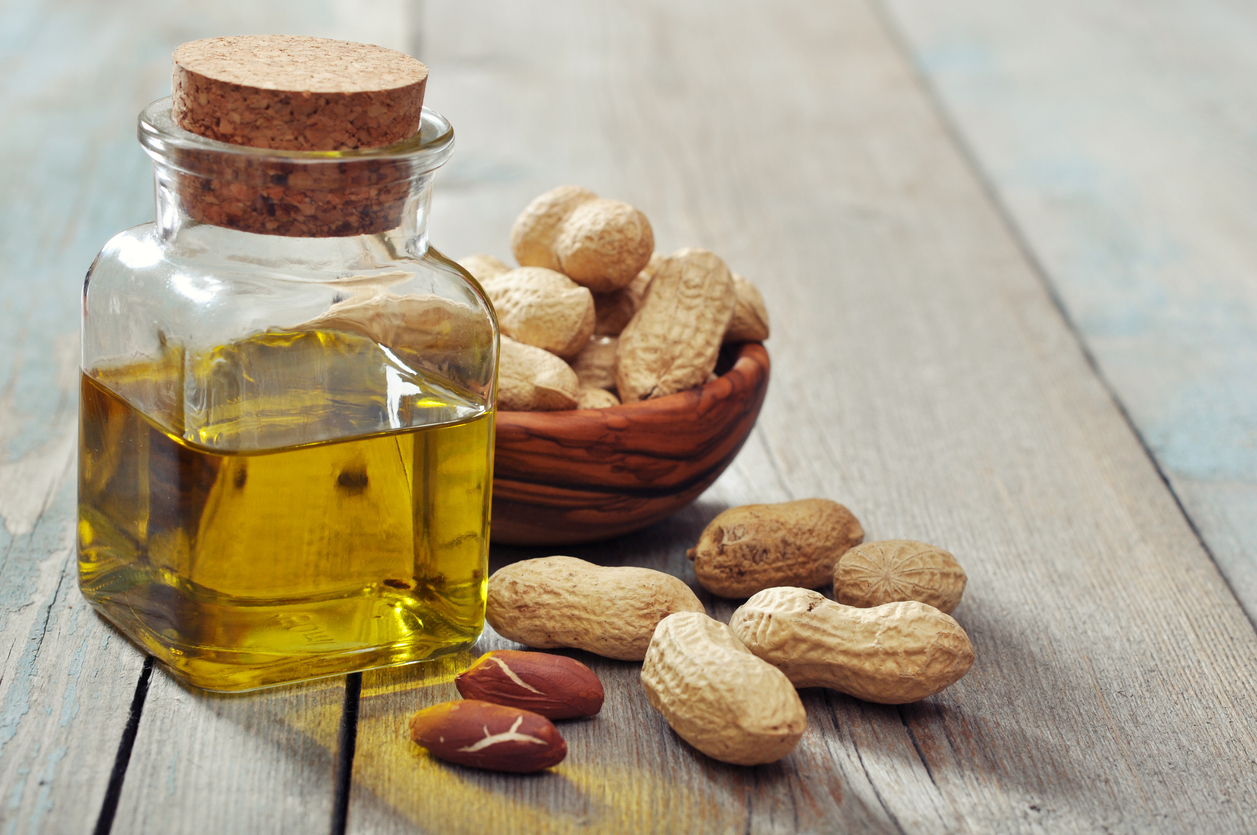Exploring the Impact of Wigmore Trading: Leading Peanut Oil Exporters in Nigeria
Exploring the Impact of Wigmore Trading: Leading Peanut Oil Exporters in Nigeria
Have you ever wondered how a small trading company managed to become one of the leading exporters of peanut oil in Nigeria? Well, look no further because today we are diving deep into the fascinating world of Wigmore Trading. From their humble beginnings to their meteoric rise, this blog post will take you on an exhilarating journey through the impact and success story of this incredible Nigerian enterprise. Get ready to be inspired and amazed as we uncover the secrets behind Wigmore Trading’s triumph in the peanut oil industry!
Introduction to Wigmore Trading and their role in the Nigerian peanut oil export market
Introduction to Wigmore Trading and their role in the Nigerian peanut oil export market
Wigmore Trading is a leading exporter of high-quality peanut oil from Nigeria. The company has established itself as a key player in the international market, known for its commitment to quality and reliability. With over 20 years of experience in the industry, Wigmore Trading has built a strong reputation for providing premium products that meet global standards.
The Nigerian peanut oil export market is one of the largest in Africa, with an estimated annual production capacity of 900,000 metric tons. It is also a highly competitive market, with many players vying for a share of the global demand for peanut oil. In this landscape, Wigmore Trading stands out as a major contributor to the growth and success of this sector.
One of the key factors that have propelled Wigmore Trading to become a top player in the Nigerian peanut oil export market is its strategic location. Nigeria is strategically positioned at the heart of West Africa, making it an ideal gateway for trade between African countries and other regions such as Europe and Asia. This advantageous location has enabled Wigmore Trading to efficiently source raw materials from local farmers and distribute their products globally at competitive prices.
Moreover, Wigmore Trading prides itself on its commitment to quality control measures throughout its supply chain process. The company ensures that all peanuts used for production are carefully selected and sourced directly from trusted farmers across Nigeria.
The history and evolution of the peanut oil industry in Nigeria
The history and evolution of the peanut oil industry in Nigeria dates back to the pre-colonial era when peanuts were used primarily for their nutritional value. However, it was not until the early 20th century that commercial production of peanut oil began in the country.
During this time, peanut cultivation and processing methods were rudimentary, with most farmers relying on traditional techniques to extract oil from peanuts. This limited production capacity and hindered the growth of the industry.
In the 1960s, with the advent of modern technology and machinery, there was a significant shift in peanut oil production in Nigeria. The government encouraged large-scale farming and invested in improved processing methods, leading to an increase in production levels.
As demand for peanut oil grew both domestically and internationally, small-scale enterprises emerged across different regions of Nigeria. These businesses played a crucial role in meeting local demands and driving economic growth.
In the late 1970s, a major milestone was achieved when Wigmore Trading Company was established as one of Nigeria’s first commercial exporters of peanut oil. This marked a turning point for the industry as Wigmore Trading introduced advanced processing techniques and quality control measures that significantly improved product standards.
Over time, other companies followed suit, bringing about increased competition within the market. As a result, there has been continuous innovation and improvement in production processes to meet international standards.
How Wigmore Trading has contributed to the growth of the peanut oil export market in Nigeria
Wigmore Trading, a leading Nigerian company, has been a major player in the growth of the peanut oil export market in Nigeria. This section will highlight the various ways in which Wigmore Trading has contributed to the development and expansion of this industry.
1. High-Quality Products: One of the key factors that have driven the success of Wigmore Trading in the peanut oil export market is its commitment to delivering high-quality products. The company sources its peanuts from trusted local farmers and uses advanced processing techniques to ensure that their peanut oil meets international standards. As a result, they have gained a reputation for producing premium quality peanut oil, which has helped them to capture a significant share of the export market.
2. Expanding Production Capacity: In recent years, Wigmore Trading has significantly invested in expanding its production capacity to meet the growing demand for peanut oil both domestically and internationally. The company now operates multiple state-of-the-art factories equipped with modern machinery that allows for efficient production and packaging processes. This increased production capacity has enabled them to increase their exports and contribute to the overall growth of Nigeria’s peanut oil export market.
3. Developing International Partnerships: Another crucial aspect that has contributed to Wigmore Trading’s success is its strategic partnerships with international buyers and distributors. The company actively participates in trade shows and exhibitions worldwide, showcasing its products and building relationships with potential buyers. These efforts have resulted in long-term contracts with several international clients, further boosting their exports and creating opportunities for sustained growth.
The benefits of using peanut oil as a cooking and beauty product
Peanut oil, also known as groundnut oil, has been used for centuries in cooking and beauty routines. It is a versatile and affordable oil that is derived from pressing peanuts. Wigmore Trading, one of the leading peanut oil exporters in Nigeria, offers high-quality peanut oil that has numerous benefits for both cooking and beauty purposes.
In this section, we will delve into the various benefits of using peanut oil as a cooking and beauty product.
1. Health Benefits
Peanut oil is rich in monounsaturated and polyunsaturated fats, making it a healthier alternative to other oils such as vegetable or canola oil. These healthy fats help lower bad cholesterol levels and reduce the risk of heart diseases. Additionally, peanut oil contains high levels of vitamin E, which acts as an antioxidant, protecting cells from damage caused by free radicals.
2. High Smoke Point
One of the significant advantages of using peanut oil for cooking is its high smoke point. The smoke point refers to the temperature at which an oil starts to burn and produce smoke. Peanut oil has a smoke point of 450°F (232°C), which makes it ideal for deep frying or any high-heat cooking methods like stir-frying or roasting. This means that it can withstand higher temperatures without breaking down into harmful compounds like trans fat.
Challenges faced by Peanut Oil exporters in Nigeria and how Wigmore Trading overcomes them
Challenges faced by Peanut Oil exporters in Nigeria:
Nigeria is the second-largest producer of peanuts in Africa and one of the top ten peanut-producing countries globally. With its rich agricultural resources, the country has a vast potential for exporting peanut oil to other countries. However, despite this potential, Nigerian peanut oil exporters face several challenges that hinder their success in the global market.
1. Inconsistent quality standards: One major challenge faced by Nigerian peanut oil exporters is the inconsistency in quality standards. The lack of standardized production processes and infrastructure leads to variations in product quality, making it difficult for them to compete with established brands in international markets.
2. Limited access to finance: Most peanut oil exporters in Nigeria are small-scale businesses with limited financial resources. They often struggle to secure funding for expanding their operations or investing in modern technology and equipment, which affects their productivity and competitiveness.
3. Inadequate storage facilities: Proper storage is crucial for maintaining the quality of peanut oil during transportation and ensuring its longevity on store shelves. However, most Nigerian exporters lack adequate storage facilities, resulting in spoilage of products and loss of revenue.
4. Poor transportation infrastructure: Another significant challenge faced by exporters is the inadequate transportation infrastructure within the country. This makes it challenging to transport goods from remote areas where peanuts are grown to ports or airports for exportation.
Sustainability practices and social impact initiatives by Wigmore Trading in the peanut oil industry
Sustainability Practices:
In recent years, there has been a growing awareness and concern about the impact of businesses on the environment. As a leading peanut oil exporter in Nigeria, Wigmore Trading recognizes its responsibility towards sustainability and is committed to implementing sustainable practices in all aspects of its operations.
One of the key initiatives undertaken by Wigmore Trading is promoting sustainable agriculture practices among its network of farmers. The company provides training and resources to help farmers grow peanuts using sustainable methods that minimize soil erosion, reduce water usage, and avoid harmful chemicals. This not only benefits the environment but also improves the quality and safety of the peanuts used for oil production.
Another important aspect of sustainability for Wigmore Trading is reducing waste and promoting recycling. The company has implemented a zero-waste policy in its production facilities and uses biodegradable packaging materials wherever possible. In addition, they have partnered with local organizations to collect used cooking oil from households and restaurants for conversion into biodiesel, thus reducing their carbon footprint.
Social Impact Initiatives:
Apart from their commitment to sustainability, Wigmore Trading also takes active steps towards making a positive social impact in the communities where they operate. One such initiative is their support for smallholder farmers through fair trade practices.
Wigmore Trading ensures that these farmers receive fair compensation for their produce while providing them with access to training programs and resources to improve their farming techniques. By empowering these farmers, the company helps create opportunities for economic growth within rural communities.
–
The Impact of Wigmore Trading on the Nigerian Economy
Wigmore Trading is one of the leading peanut oil exporters in Nigeria, and its impact on the country’s economy cannot be overstated. The company has been a major player in the agricultural sector of Nigeria, particularly in producing and exporting peanut oil. In this section, we will explore the various ways Wigmore Trading has influenced and contributed to the growth of the Nigerian economy.
1. Job Creation and Employment Opportunities
One significant impact that Wigmore Trading has had on the Nigerian economy is through job creation and providing employment opportunities for thousands of Nigerians. The company employs a large workforce, from farmers who cultivate peanuts to factory workers who process them into high-quality peanut oil. This not only provides jobs but also helps alleviate poverty and reduce unemployment rates in the country.
2. Boosting Agricultural Production
Wigmore Trading’s operations have significantly boosted agricultural production in Nigeria, specifically in peanut cultivation. With their advanced farming techniques and technology, they have increased yields while maintaining high-quality standards. This has not only helped meet local demand for peanut oil but also increased exports which bring foreign exchange into the country.
3. Contribution to Foreign Exchange Earnings
As one of Nigeria’s top exporters, Wigmore Trading plays a crucial role in generating foreign exchange earnings for the country through its peanut oil exports. This contributes to stabilizing Nigeria’s exchange rate and reducing dependence on imports.








Comments are closed.